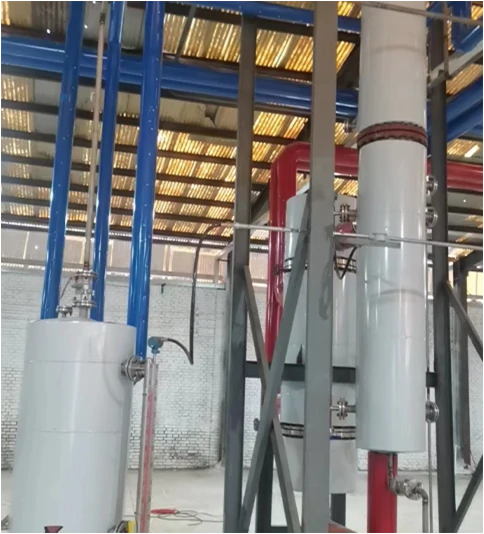
Dec . 12, 2024 10:13 Back to list
making glacial acetic acid
The Process of Making Glacial Acetic Acid
Glacial acetic acid, a clear and colorless liquid, serves as a vital organic compound in various industrial applications. Known for its strong acidity and ability to act as a chemical solvent, it is widely utilized in the production of synthetic fibers, plastics, and food preservatives. Understanding the process of making this chemical is essential for various industries and chemical laboratories.
Understanding Acetic Acid
Acetic acid, with the chemical formula CH₃COOH, is a weak acid that is typically found in a diluted form—vinegar is a classic example. However, when acetic acid is purified and concentrated to a level exceeding 99%, it becomes glacial acetic acid, so named for its tendency to form ice-like crystals at low temperatures. This concentration amplifies its chemical properties, making it a crucial reagent in chemical synthesis.
Raw Materials
To synthesize glacial acetic acid, several raw materials are commonly used. The primary feedstock includes methanol and carbon monoxide. These compounds are foundational in the carbonylation reaction, a process that combines them to produce acetic acid.
The Carbonylation Reaction
The carbonylation of methanol involves a reaction with carbon monoxide in the presence of a catalyst, typically a metal compound, such as rhodium or iridium. This reaction typically occurs in a high-pressure environment, and the combined heating conditions help facilitate the formation of acetic acid.
The reaction can be summarized as follows
\[ \text{CH}_3\text{OH} + \text{CO} \rightarrow \text{CH}_3\text{COOH} \]
After this process, the acetic acid produced is still in a diluted form and must undergo further refinement to reach glacial concentrations
.making glacial acetic acid

Purification Process
The initial product from the carbonylation reaction is often a mixture that contains unreacted methanol, water, and other byproducts. To isolate glacial acetic acid, the mixture goes through a series of purification steps
1. Distillation The mixture is typically subjected to fraction distillation, which takes advantage of the varying boiling points of the components. Water and methanol, having lower boiling points, can be evaporated and removed, whereas acetic acid remains as a liquid.
2. Drying To achieve glacial acetic acid, any remaining water must be eliminated. This is usually accomplished through drying agents, which absorb the moisture, or through further distillation techniques.
3. Final Distillation Once the solution is sufficiently dehydrated, a final distillation can produce acetic acid of 99% purity or higher, resulting in glacial acetic acid.
Applications of Glacial Acetic Acid
Upon achieving glacial acetic acid, it is applied across multiple sectors. In the chemical industry, it acts as a raw material for the synthesis of various chemicals, including acetate esters, which are used in coatings and adhesives. Furthermore, it plays a crucial role in the textile industry for dyeing and finishing fabrics. In food production, glacial acetic acid is a key ingredient for vinegar and acts as a preservative and flavoring agent.
Safety Precautions
While manufacturing glacial acetic acid, it is crucial to observe safety precautions. The concentrated acid can cause severe chemical burns, thus requiring appropriate protective gear, including gloves and goggles. Adequate ventilation and proper storage conditions are also essential to minimize risks associated with its volatility and corrosiveness.
In conclusion, producing glacial acetic acid entails a meticulous process involving the carbonylation of methanol, followed by distillation and purification methods. Its significance across various industries underlines the importance of understanding and employing safe practices in its production.
-
SmartAgri Solutions - Precision Farming&Soil Monitoring
NewsJul.13,2025
-
Industrial Solutions-Example Inc.|Smart Manufacturing&Energy Efficiency
NewsJul.13,2025
-
Food Grade Glacial Acetic Acid-Pure Quality|High-Purity Acetic Acid,Food-Grade Chemical
NewsJul.13,2025
-
Industrial Efficiency Solutions-NextGen Technologies|Advanced Automation&Data-Driven Analytics
NewsJul.12,2025
-
Smart Manufacturing Solutions-Example.com|Enhance Efficiency&Reduce Costs
NewsJul.12,2025
-
Food grade glacial acetic acid
NewsMar.07,2025
